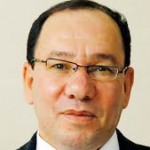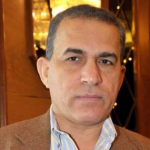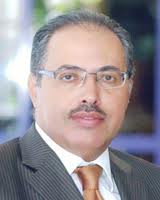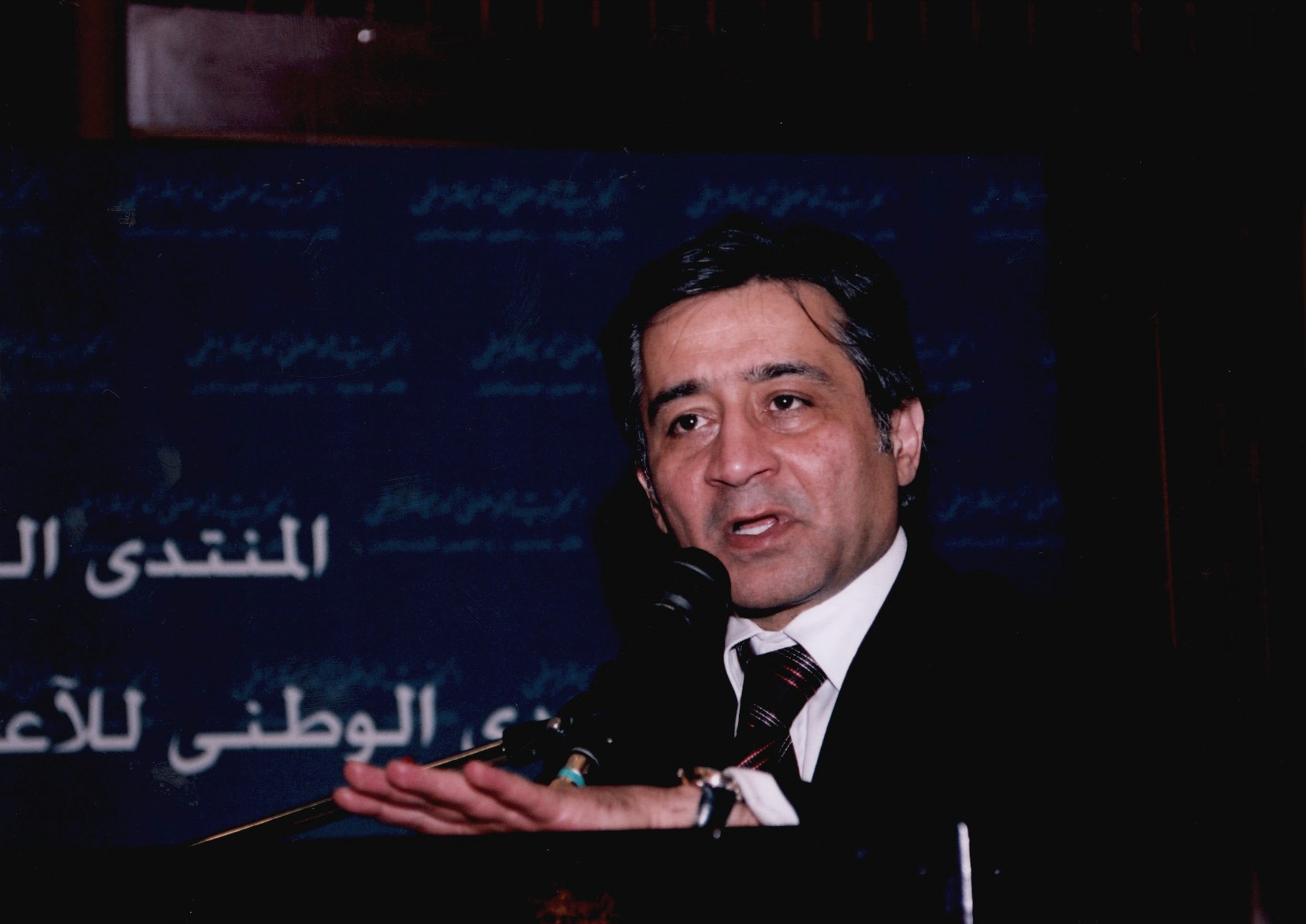Op-ed pages have been busy exploring the recent Friday speech of the Saudi sheikh Mohamed Abdel Rahman El-Oriefy, in which he praised Egypt in Amr Ebn Al-Aas Mosque in old Cairo. More than one writer also discusses the growing number of Islamist political parties and their preparations for the upcoming parliamentary elections. On another note, some commentators expect upcoming Friday speeches to focus on the second anniversary of the January 25th Revolution.
El-Oriefy and Al-Gizawy
Wael Qandil
Al-Shorouk newspaper
On the occasion of Sheikh El-Oriefy’s Friday speech, Qandil reminds the Saudi authorities of Ahmed Al-Gizawy’s trial. He praises the spirit of the Saudi sheikh when he spoke highly of the January 25th Revolution. The writer states that although some Arab countries are supportive of Egypt, others are happy that the price of the Egyptian pound is notably dropping. With respect to El-Oriefy’s campaign on commending Egypt, the sheikh has to be reminded of the continuing struggle of the Egyptian lawyer Al-Gizawy in Saudi courts.
Qandil is surprised to hear from the spokesperson of the Egyptian foreign ministry that almost all lawyers and human rights activists who have volunteered to defend Al-Gizawy have now withdrawn from the case. He laments that the legal adviser to the Egyptian consulate in Jedda is the only Egyptian official attending the trial with Al-Gizawy.
If El-Oriefy has come to Egypt to boost the morale of Egyptians, the writer believes that probably the time has come for Egyptian-Saudi diplomatic relations to revise its strength. If President Morsy plans to visit Saudi Arabia this month, Qandil suggests Al-Gizawy’s case to be on his agenda while discussing bilateral relations with the Saudi king.
16 Islamist political parties
Fahmy Howeidi
Al-Shorouk newspaper
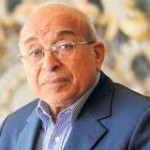
Al-Shorouk Newspaper
Howeidi examines the Islamist political parties that plan to compete in the upcoming parliamentary elections. He lists five observations on Egypt’s 16 Islamist parties. His first remark is that parties based on Islamic principles are not purely political, because their Islamic backbone obliges them to struggle for balancing between being politicians and being Islamists. Such parties have to practice preaching as part of their political programmes. Howeidi also argues that many of these parties are new to authority and to the basics of politics altogether.
Many of the Islamist political activists have spent years in detention. This has lessened their experience in playing proper politics with external parties. The columnist believes that leaders of Islamist parties lack the experience of dealing with politicians from different ideologies. Therefore, their thoughts and insights on political developments are often not up to scratch, he says.
The ambition for fame of many leaders of Islamist parties, mainly Salafis, surprises Howeidi. He writes: “I can’t really hide my astonishment and condemnation of those from Islamic parties who want to compete against each others to establish political parties and act as representatives in parliament.” Howeidi’s final observation is that Salafi parties do not base their internal relations on their political programmes, but instead on their relations with their senior sheikhs.
An insult to the foreign ministry and its minister
Soliman Gouda
Al-Masry Al-Youm newspaper
Gouda asks how must the minister of foreign affairs feel when presidential adviser Essam Al-Haddad continues to play the role of the minister in handling Egypt’s foreign relations? The writer argues that there is a latent conflict between the foreign ministry and Haddad, whose job description was initially created by President Morsy.
If the situation remains as it is, then getting rid of the foreign ministry would probably be the best solution. Keeping Haddad performing the ministry’s duties singlehandedly is sufficient for Egypt to manage its foreign relations, Gouda writes. Comparing Haddad’s position to similar posts that existed during Mubarak’s and Sadat’s reigns, Gouda argues that the two former presidents were always keen to maintain the foreign ministry as one of the most important in the country.
Today, current foreign minister Mohamed Amro denies conflicts between his position and that of Haddad. Gouda goes over Haddad’s trip to the United States, saying that such a trip being conducted by someone other than Amro suggests there is a problem between the ministry and Haddad. The foreign ministry was also left aside in the latest trip to the United Arab Emirates. This raises the question, if Amro does not attend such a visit, who should actually go? Is it enough for Amro to welcome Mahmoud Abbas to the presidential palace, asks Gouda.
A day when Friday speeches do not reap benefits
Mohamed Amin
Al-Masry Al-Youm newspaper
As Friday speeches are weekly fueled with calls to support the constitution, start dialogue or warn against protests, Amin states that probably the upcoming Friday speeches will prepare for the second anniversary of the January 25th Revolution. Many people have not carefully listened to sheikh El-Oriefy’s Friday speech in Amr Ebn Al-Aas mosque in old Cairo, but Egyptians vary in their reactions to the speech. The sheikh has, thankfully, called upon Egyptians to pour their savings into Egyptian banks rather than foreign ones.
However, the Saudi preacher has turned many Egyptians off as he spoke about the January 25th Revolution and Egypt’s misleading media. The writer expects that next Friday, sheikhs will be addressing Egyptians and asking them to refrain from violence on the revolution’s second anniversary.
There is a general sense of insecurity affecting everybody in Egypt, Amin writes. The Muslim Brotherhood is scared and the president is also worried. They keep sending conflicting messages to the people by changing the minister of interior and the prosecutor general.
However, the main question is: What do Egyptians really want from the coming anniversary? Is it going to be a revolution against the Muslim Brotherhood or against the newly-passed constitution? Are there any probabilities that the army would take over again? The National Salvation Front, Egypt’s largest opposition bloc, does not call for a revolution. But Amin says that the Egyptian street has been leading political parties since the revolution. So it is not the choice of parties whether is a new revolution. Ordinary Egyptians will decide on what happens on 25 January.
Who funds the media?
Mohamed Shoman
Al-Watan newspaper
Islamists ask who funds media channels that constantly attack the Muslim Brotherhood and the Salafis. Shoman responds, saying that this question has always been open for discussion, even before the January 25th Revolution. Islamists are now using this question to merely tarnish the entire Egyptian media.
The strange point, in Shoman’s view, is that Islamists accuse remnants of the old regime of sponsoring some Egyptian media channels, although everybody knows the names of investors and businessmen running the stations. The writer asks why wouldn’t we ask who funds the satellite TV channels that are only designed for Salafi sheikhs to promote their radical agendas?
The writer suggests that TV channels should respond to all claims by the Muslim Brotherhood and salafis by informing them of their sources of funding. At the same time, the public attention should also be cast on the Islamist media and its own bias.
Finally, Shoman notes that State-run media seems to be incurring more losses than profits, although it had received $3.3 bn from the government this year- only to defend Morsy and his regime.
